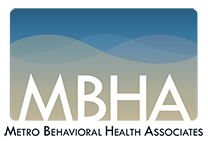EATING DISORDER TREATMENT
MBHA’s Eating Disorder Treatment Philosophy
Regardless of the type of eating disorder, MBHA offers a comprehensive treatment approach which usually includes individual and group psychotherapy, nutritional counseling, medical monitoring, medication management, family support, education and more. MBHA’s team of specialists can incorporate carefully chosen treatment options that offer an individualized, compassionate, and thoughtful treatment approach.
MBHA’s Eating Disorder Treatment philosophy is weight neutral and aligned with Health at Every Size™ principles. MBHA recognizes that health is multifaceted and not simply reflected by body size. At MBHA, we work with our clients to understand and find freedom from the rules and falsehoods of diet culture, develop a more intuitive and peaceful relationship with food and movement, and find ways to cope with the difficulties of living in a society that so equates health with body size and thinness with superiority without needing to resort to disordered eating behaviors.
MBHA’s therapists and dietitians have vast expertise in treating all forms of eating disorders. The most common eating disorders are Anorexia Nervosa, Bulimia Nervosa, and Binge Eating Disorder. Other lesser-known eating disorders include Avoidant Restrictive Food Intake Disorder (ARFID) and Rumination Disorder. There is also a category called Other Specified Feeding or Eating Disorders (OSFED) that encompasses all eating disorders that do not meet the strict diagnostic criteria for any of the above eating disorders.
Regardless of diagnosis, all eating disorders present serious mental and physical health challenges and are deserving of compassionate, collaborative and attentive care. Eating disorders do not discriminate based on age, gender, race, sexual orientation, body size or any other characteristic or identifier. MBHA understands that achieving and maintaining health is a complex process and is prepared to help.
